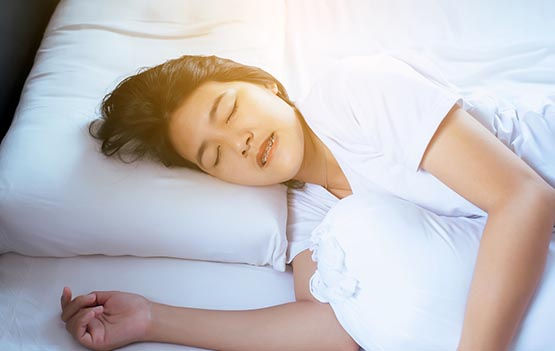

Teeth grinding, also known as bruxism, is a condition in which you unconsciously clench, grind or gnash your teeth. It can occur during the day, or at night (sleep bruxism). While most people occasionally grind their teeth, grinding on a regular basis can damage teeth and create oral health complications. Teeth grinding can be caused by stress and anxiety, but it is most commonly due to an abnormal bite, or missing or crooked teeth. By scheduling a visit with a dentist, you can be fitted with a mouth guard to protect your teeth. Dr. Van Dyke is a dentist in Gainesville, FL, patients can rely on to treat their teeth grinding.
Because most grinding often occurs at night, you might be unaware that you are grinding your teeth. However, bruxism does leave behind signs and symptoms.
Constant grinding can wear out tooth enamel, leaving deeper layers of the tooth exposed and sensitive.
Through grinding, teeth can eventually become flattened, fractured, chipped, or loose.
Clenching the jaw at night when grinding teeth can leave your jaw feeling tired, sore and tight the next day.
Teeth grinding can cause a dull headache originating at the temples and feel like an earache.
The inside of the cheek may be damaged and chewed up from teeth grinding and jaw clenching.
If you suspect that you are grinding your teeth at night, visit your local dentist. If left untreated, teeth grinding can lead to fracturing, wearing down, loosening, and even complete loss of teeth. The result might require the implementation of bridges, crowns, root canals, implants, or dentures. To help avoid teeth grinding, you can cut back on caffeinated drinks and foods, avoid alcohol consumption and avoid chewing gum as it accustoms your jaws to clenching.
